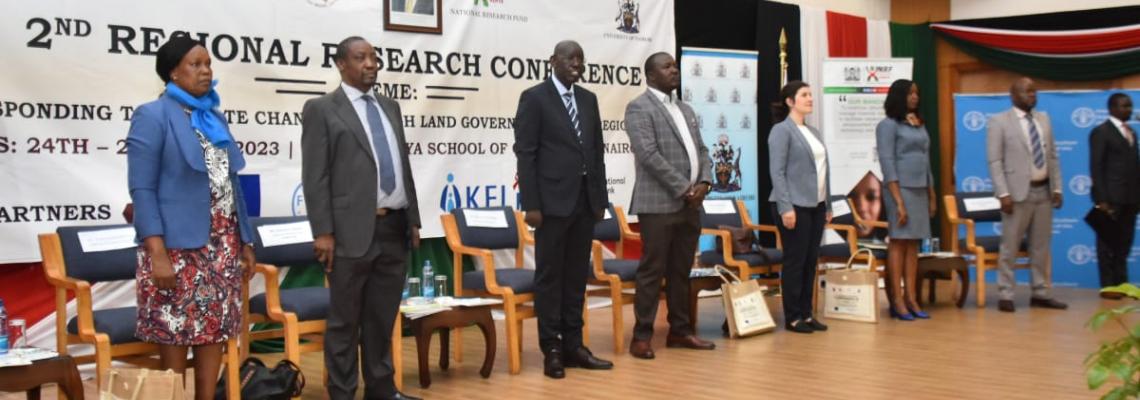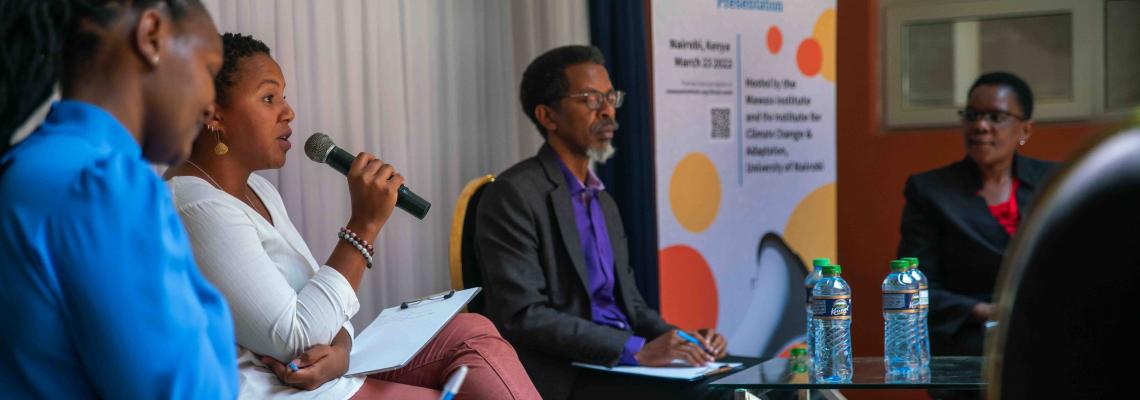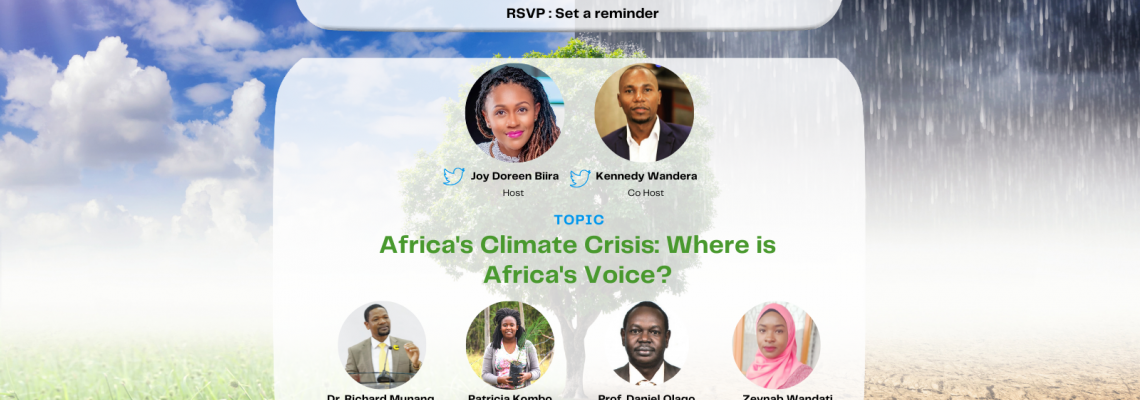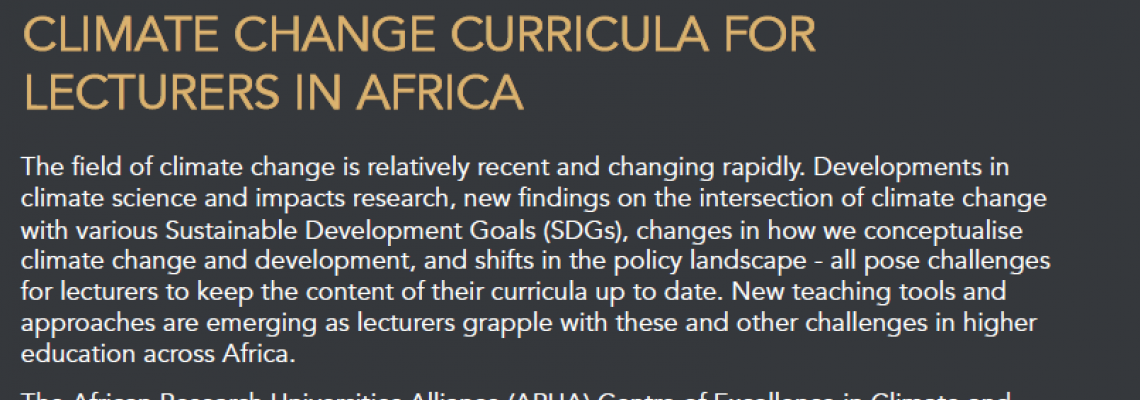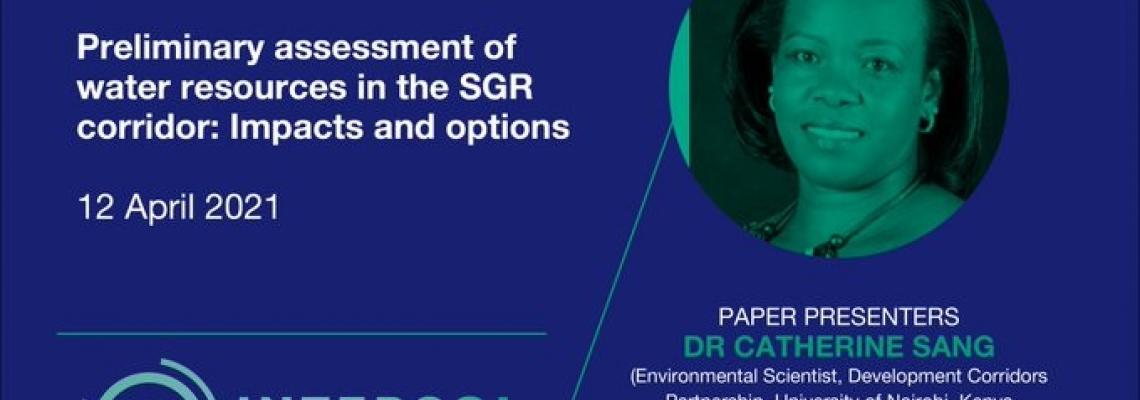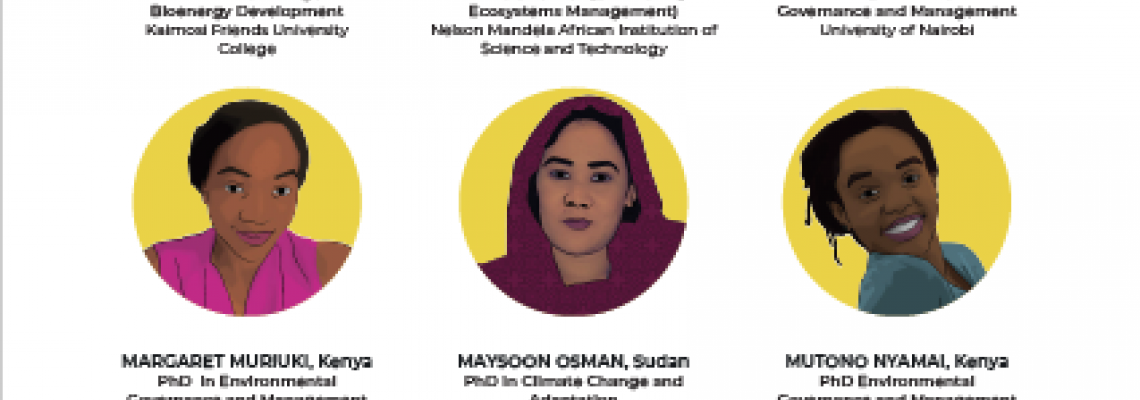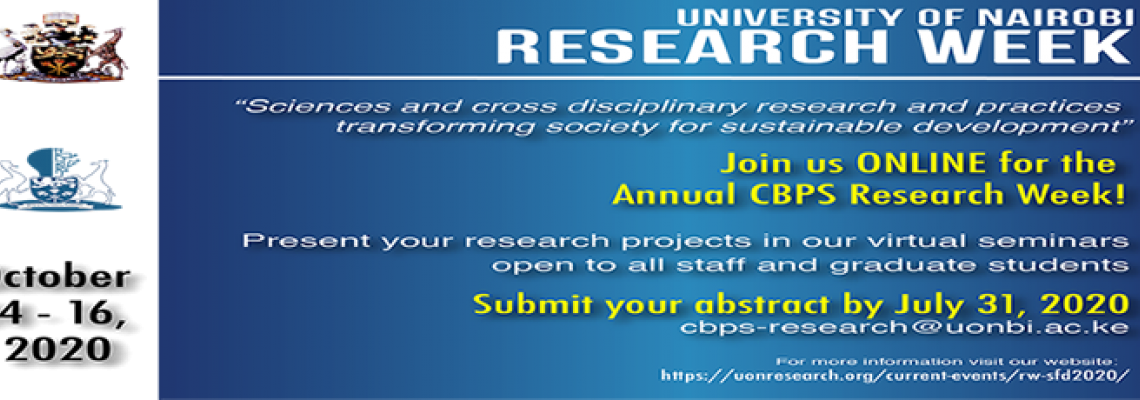The institute for Climate Change and Adaptation was well presented at the African Research Universities Alliance Second Biennial conference from the 18th to the 20th November 2019. The well attended event was held at the University of Nairobi towers with well over 300 participants attending the presentations.
On the first day, the Institute presented two papers titled;" Humanities -Science and Social Research Collaborations:An Agenda for the African Research University in the pursuit of the Fourth Industrial Revolution" Where as the second was under the thematic area of Climate Change and the Fourth Industrial Revolution and was titled, "Africa and the Fourth Industrial Revolution: Climate Change Challenges, Demand shift in Education Models"
Below are excerpts of the first presentation
Humanities -Science and Social Research Collaborations:An Agenda for the African Research University in the pursuit of the Fourth Industrial Revolution.
Dr George Outa Presenting his Paper at the ARUA Second Biennial Conference in Nairobi
In a more familiar African context, the late 1990s and only a few years after putting the gory system of apartheid to its death bed, South Africa trialed a fairly familiar chorus of seeking to privilege Science and Technology over the Humanities. Witnessed first-hand was the subsequent death-knell of such departments as Anthropology; philosophy, and Ancient Greek Studies where the timeless literary gems of Sophocles, Aristophanes; Socrates and Aristotle were threatened with closure. In Kenya, for close to three decades, a policy decision saw to the downgrading of the Arts under what persists as the “integrated” syllabus. With the simultaneous demise of the Advanced Level school system, the previous rich menu of choice for literary and artistic studies also diminished or died altogether. The result was an ‘Ordinary Level’ school system (Kenya’s famously called, 8:4:4 system) that not only saw to the substantial reduction in the number of literary texts a high school student interacted with, but it also considerably affected the number of contact hours available to learners in either subject. The policy shifts referenced herein are in instances, departures form the colonial systems some of which had persistent well into the 1980s. As of this Paper, Kenya has once again been caught up in a fairly serious and emotive debate around the introduction of what is billed as the ‘Competency-Based Curriculum.’ The real impact though, of a diminished menu of the Arts generally, across the entire school curriculum; including in Africa’s Research universities has however hardly been evaluated other than for frequent anecdotal comments that newer generation of students can barely write or express themselves properly.
Arising from the foregoing, the main aim in this paper is to initiate collaborative dialogue, including research programming between African University’s natural science faculties and their little understood humanities colleagues. It will also hope to incorporate Kenya’s Commission for University Education (and or similar regulatory entities in Africa) as well as policy makers at Ministers of Education. We believe this objective to be urgent following the global community’s adoption of the ‘Sustainable Development Goals’ (SDGs) in September 2015 and the imperative of ensuring education and research anchorage on more solid pedagogical foundations. A second aim is to review and programme for research, some of the major inter and trans-disciplinary topics and issues that can cross-fertilize the vision of a fourth industrial revolution, realizing that these types of conversations and dialogues shall, hopefully, lead to more evidence-based policy decisions and actions across the board.
The Institute for Climate Change and Adaptation was well presented at the African Research Universities Alliance Second Biennial conference from the 18th to the 20th of November 2019. The well-attended event was held at the University of Nairobi towers with well over 300 participants attending the presentations.
On the first day, the Institute presented two papers titled;" Humanities -Science and Social Research Collaborations:An Agenda for the African Research University in the pursuit of the Fourth Industrial Revolution" Whereas the second was under the thematic area of Climate Change and the Fourth Industrial Revolution and was titled, "Africa and the Fourth Industrial Revolution: Climate Change Challenges, Demand shift in Education Models"
Below are excerpts of the first presentation
Humanities -Science and Social Research Collaborations: An Agenda for the African Research University in the pursuit of the Fourth Industrial Revolution.
In a more familiar African context, the late 1990s and only a few years after putting the gory system of apartheid to its death bed, South Africa trialed a fairly familiar chorus of seeking to privilege Science and Technology over the Humanities. Witnessed first-hand was the subsequent death-knell of such departments as Anthropology; philosophy, and Ancient Greek Studies where the timeless literary gems of Sophocles, Aristophanes; Socrates and Aristotle were threatened with closure. In Kenya, for close to three decades, a policy decision saw to the downgrading of the Arts under what persists as the “integrated” syllabus. With the simultaneous demise of the Advanced Level school system, the previous rich menu of choice for literary and artistic studies also diminished or died altogether. The result was an ‘Ordinary Level’ school system (Kenya’s famously called, 8:4:4 system) that not only saw to the substantial reduction in the number of literary texts a high school student interacted with but it also considerably affected the number of contact hours available to learners in either subject. The policy shifts referenced herein are in instances, departures from the colonial systems some of which had persistent well into the 1980s. As of this Paper, Kenya has once again been caught up in a fairly serious and emotive debate around the introduction of what is billed as the ‘Competency-Based Curriculum.’ The real impact though, of a diminished menu of the Arts generally, across the entire school curriculum; including in Africa’s Research universities has however hardly been evaluated other than for frequent anecdotal comments that newer generation of students can barely write or express themselves properly.
Arising from the foregoing, the main aim of this paper is to initiate collaborative dialogue, including research programming between African University’s natural science faculties and their little-understood humanities colleagues. It will also hope to incorporate Kenya’s Commission for University Education (and or similar regulatory entities in Africa) as well as policymakers at Ministers of Education. We believe this objective to be urgent following the global community’s adoption of the ‘Sustainable Development Goals’ (SDGs) in September 2015 and the imperative of ensuring education and research anchorage on more solid pedagogical foundations. A second aim is to review and program for research, some of the major inter and trans-disciplinary topics and issues that can cross-fertilize the vision of a fourth industrial revolution, realizing that these types of conversations and dialogues shall, hopefully, lead to more evidence-based policy decisions and actions across the board.

